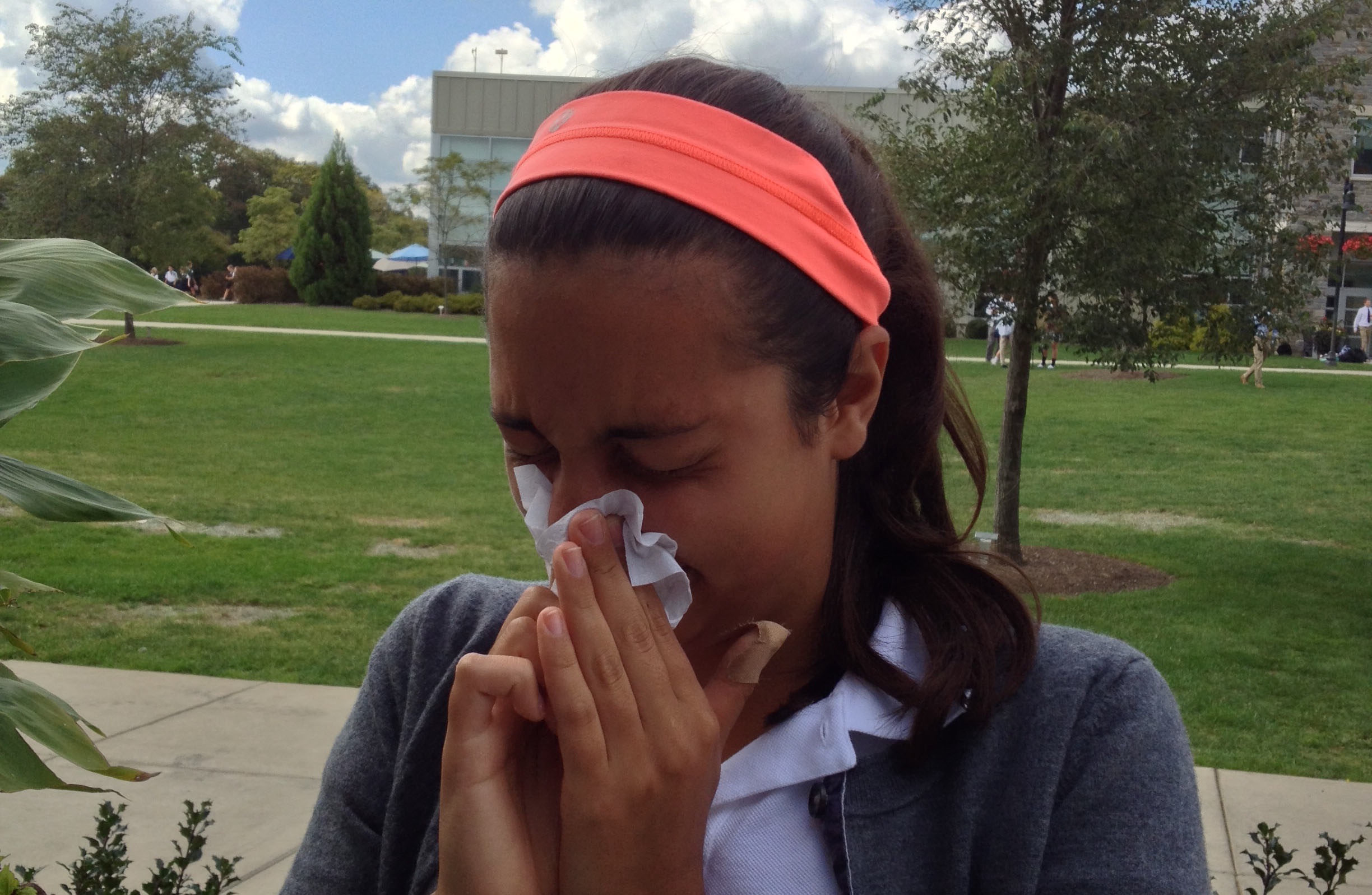
Taryn Gallagher ’14, Chloe Kinzig ’14: It’s that time of year again; school has started, leaves are falling, and allergies are raging. Seasonal allergies are common and frustrating inconveniences; common because in America, 20 to 40 million people are affected. In a poll of Upper School Episcopal students roughly 50% suffer from seasonal allergies.
Unfortunately, allergies not only make people feel cold-like symptoms, but they inhibit peoples’ everyday lives. For example, allergies are often linked with asthma, which results in difficulty breathing while exercising or playing sports. They also affect sleeping, performance in school and work, and even some outdoor recreational activities. Becca Archambault ‘16 shared that, “Allergies in the fall are the worst. Just as I am getting back into the swing of school, my allergies flare up and makes adjusting a little harder.”
For some, it is hard to differentiate between allergies and the common cold. For example, many allergies and colds cause runny noses, coughing, sneezing, and congestion. While many symptoms are indeed the same, there are a few that are unique to either allergies or a cold. For example, a low fever and body aches can accompany a cold, but they will never be seen with allergies. Secondly, a cold usually lasts for a few weeks whereas allergies could potentially be year-long. Finally, the usual times of occurrence are different. The height of cold season is in the winter unlike that of allergies which is in the fall and spring when plants are pollinating.
As those new to allergies may soon discover, there is no unfortunately no cure for the seasonal ailment. Although there are quite a number of over-the-counter and prescription medications available, the best treatment is to avoid the allergens to the best of ones ability. In the fall, allergies are caused by airborne ragweed pollen allergens. These allergens usually consist of pollen proteins from trees, plants, and ragweed. One idea to cope with such allergens is to eat lots of fresh fruits and vegetables as well as stay hydrated. Archambault emphasized this tactic, saying “It really helps me to drink lots of fluids when my allergies are becoming worse. It’s a natural way to reduce histamine production.”
If one experiences symptoms of seasonal allergies, there are many pharmaceutical avenues that can be pursued for relief as well. An entire category of natural treatments exists to treat seasonal allergies and include herbs such as butterbur, nettles and goldenseal. Antihistamines, such as Benadryl, Zyrtec and Xyzal can be taken orally, while other similar products come as nasal sprays or eye drops.
Callie Avellino ’14 says she takes Zyrtec everyday on top of a prescription medicine from her doctor. “The medicines really help for both fall and spring allergies. Those and a lot of tissues.”